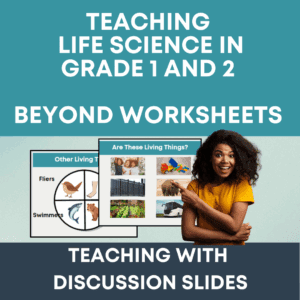At the start of my teaching journey, I hid the fact that my students had time to play. I closed the door and hoped that my colleagues, or even worse, my principal would not come into the room during that time of the day. Although I knew that these young people needed the time to play and explore, I was nervous about letting them have that time. I thought my job was to teach the curriculum, not to have time to play.

Now years later and much more informed, I open the door to my playful learning classroom. Powerful learning happens in my playful learning classroom. The Lego Foundation (2022) states that “we now have a large – and growing – pool of evidence to show that learning through play is the best way to support learning. Children are natural scientists – they come into the world ready to experiment and learn through play. And they use what they discover to not only adapt the structure of their brain, but also strengthen the skills they need to continue being engaged and flexible learners for their whole lives”.

Playful Learning Helps Children Develop Skills and Knowledge
Cognitive Skills
Playful learning helps children develop cognitive skills:
- Problem solving
- Recall
- Decision making
- Information processing
- Language
- Foundational concepts found in Math, Science and Social Studies
Language and Literacy
Oral language used during play builds the foundation for future reading and writing. Reading and writing are often woven into a playful learning classroom as children retell stories through dramatizations with stuffed animals, puppets or small world pieces.
Social Skills
Playful learning provides children opportunities to practice social skills such as: collaboration, problem solving strategies, negotiation, taking turns and communicating. They learn to see things from another person’s point of view. Sometimes children do this on their own, other times it is through scaffolding from peers or adults.



Emotional Skills
As children play they are able to relax and explore feelings such as pain, fear, frustration, happiness and surprise. A play-based classroom gives them a way to express things that they don’t yet have the words to fully explain. As children engage in playful learning, their attention span lengthens allowing them to feel more confident and competent.
Physical Abilities
Children develop their small and large motor skills during play. Small motor skills are developed as they construct with blocks, complete puzzles or create with art materials. Large motor skills are developed through opportunities to run, play and dance.



Don’t close your door to playful learning. Children need play as part of healthy child development. Your role as the teacher / adult is to intentionally design playful learning opportunities throughout the child’s day.
Happy Learning,
Lynda





